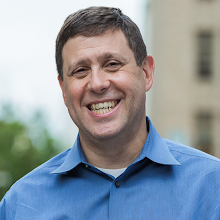Honestly, this will be interesting to see how this plays out. If our government is operating correctly, they way our founding fathers in visioned it, then the Supreme Court will step up and begin to overrule some of the questionable practices of King George II administration with regards to Civil Liberties, suspending Habeas Corpus, and torturing enemy combatants. These principles are not the ones I learned in Civics class or what helped us become the greatest country in the world.Say this for the Roberts court: it knows how to pull off a surprise ending. The day after limiting hopes for school integration and mere hours from its summer recess, the U.S. Supreme Court agreed to review two cases involving detainees at Guantánamo Bay, Cuba--cases it had rejected three months earlier....
The court, as usual, said little, and a rarefied few know its motives. But recent news may hold clues to its change of heart. On June 21, Democratic Representative Henry Waxman revealed that Vice President Dick Cheney has been insisting he is a member of the Legislative Branch and so is exempt from routine review of how the Executive Branch handles secrets. A week later, the White House said Executive privilege excuses it from coughing up papers or testimony to Congress about fired U.S. Attorneys.This further evidence of the Administration's chronic opacity might alert anyone, including Supreme Court Justices, to take a closer look at what goes on behind the walls of Guantánamo. But it's a third event that may have tipped the Justices' decision. On June 26 the CIA released the "family jewels," a compendium of love nests bugged, lock pickers hired and assassinations botched four decades ago. Though surely not the agency's hope, the public reaction seemed along the lines of, Wow, the stuff they did during the cold war was pretty mild compared with today's tactics. Squirreling away a KGB defector for tough questioning may have chilled spines in 1964, but it draws yawns in the era of renditions to secret prisons abroad...
Whatever its reasons for agreeing to hear the Guantánamo Bay cases, the court has shown independence in deciding how much legal cover to give the Bush Administration in fighting the war on terrorism. A popular notion holds that adding Chief Justice John Roberts and Justice Samuel Alito to rock-ribbed Justices Antonin Scalia and Clarence Thomas and often conservative Justice Anthony Kennedy made this the court that President George W. Bush always wanted. Yet Scalia broke with the President in Hamdi by arguing that American citizens have the right to trial in U.S. courts. Kennedy, in Hamdi and other cases, has opposed the Administration's strident claims to power in a time of war. Even Roberts and Alito have shown a careful and measured approach to issues, often taking the conservative side but resisting fundamental revisions to constitutional law.
All the talk of a court moving hell-bent to the right may ultimately prove correct. But when it comes to checking the President's power, the big surprise of this term may be that this is not George Bush's court.
The cynic in me says that in the end the Supreme Court will cave to the Executive Branch, just as the Legislative Branch has already seemed to have collapsed and become ineffective. I am hope I am wrong. As always time will tell.









No comments:
Post a Comment